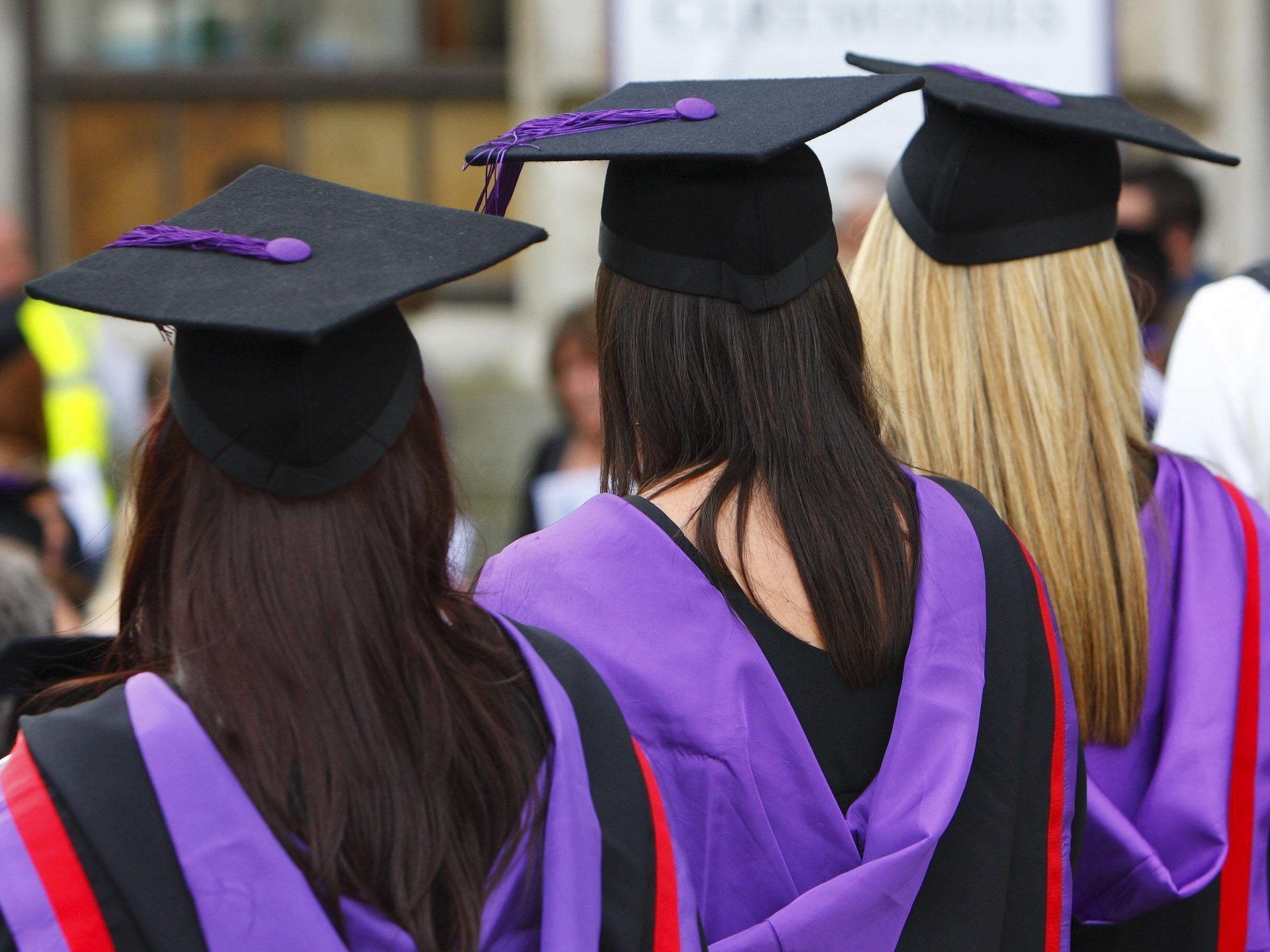Deaf students far less likely to attend prestigious UK universities than classmates, report finds
'Russell Group institutions need to get a grip on this problem'

Your support helps us to tell the story
From reproductive rights to climate change to Big Tech, The Independent is on the ground when the story is developing. Whether it's investigating the financials of Elon Musk's pro-Trump PAC or producing our latest documentary, 'The A Word', which shines a light on the American women fighting for reproductive rights, we know how important it is to parse out the facts from the messaging.
At such a critical moment in US history, we need reporters on the ground. Your donation allows us to keep sending journalists to speak to both sides of the story.
The Independent is trusted by Americans across the entire political spectrum. And unlike many other quality news outlets, we choose not to lock Americans out of our reporting and analysis with paywalls. We believe quality journalism should be available to everyone, paid for by those who can afford it.
Your support makes all the difference.Deaf students are less likely to go to one of the country’s most prestigious universities than their classmates, research has found.
Only 9 per cent of deaf young people leaving school attended a Russell Group university – the most selective in the UK – in 2015/16, compared to 17 per cent of all students, data showed.
The figures, which cover state schools, also show that overall 56 per cent of deaf youngsters went into higher education, compared to 60 per cent of all students.
The National Deaf Children’s Society (NDCS) is calling on highly selective universities to tackle the “admissions gap” and to develop programmes to widen access for deaf young people.
The data, obtained via a Freedom of Information request, comes just weeks before teenagers will receive their A-level results and learn if they have achieved the grades needed to secure university places.
Susan Daniels, chief executive of the NDCS, said: "The 50,000 deaf children and young people in the UK should have the same aspirations and the same opportunities to thrive and succeed in life as any other children.
"While we celebrate the fact that deaf young people who complete their A-levels now go to university at a similar rate to hearing young people, clearly there is still a big problem when it comes to entering our top universities.”
She said: "Russell Group universities need to get a grip on this problem. They need to work out what's working and what isn't.
"They need to learn from some of the innovative programmes that have been developed to get children from disadvantaged backgrounds into university."
Florence Grieve, a deaf student at the University of Birmingham, said: “Being less likely to go to a Russell Group university is not a reflection of deaf young people’s ability, but reflects the barriers we face. We need to have the right support, but also the confidence to aim high.
“Seeing my parents and my sister go to university inspired me to follow in their footsteps. But despite these brilliant role models, I was always aware that they have their hearing, and I didn’t actually know any deaf people who had gone to university.
“If I had, it would have given me so much more confidence to apply to university, and made me feel like it was something I could do.”
The 19-year-old student said she believed universities should offer summer schools for deaf children to increase the numbers attending the institutions.
A spokesperson for the Russell Group said: “Russell Group universities encourage all young people to apply to our universities, whatever their circumstances may be. Applications are judged on merit and are not affected by a student’s disability.
“Our universities are working with 8,000 schools across the country to continue improving the diversity of our students, by encouraging young people from all backgrounds to apply.
“Students with disabilities, including those who are deaf or hard of hearing, are supported by a disability adviser when they arrive at university to develop an individual student support plan. This can also include help with applying for disability financial support.”
Join our commenting forum
Join thought-provoking conversations, follow other Independent readers and see their replies
Comments